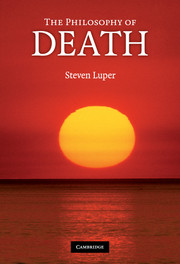9 - Abortion
Published online by Cambridge University Press: 05 June 2012
Summary
As a rule, killing people is terribly wrong. However, as noted in the last chapter, there are exceptions to the rule. Perhaps abortions that involve killing human beings who have not fully developed are among the exceptions. But aborting pregnancies does not always involve killings. In some abortions developing human beings are allowed to die, not killed. And some abortions occur before an individual is even partially developed. In such abortions, an individual is prevented from coming into existence, and what is killed is the tissue from which it is being formed.
I will not address many of the questions involved in the abortion controversy. If ‘abortion’ means the removal of a zygote, embryo, or early stage fetus from the uterus, my question only indirectly concerns abortion, since, in theory, these could be removed without killing them (if frozen or placed in an artificial womb), or killed without removing them from the uterus (which might occur when embryos developed in vitro are destroyed). My question concerns the killing itself (although, for convenience, I will use the term ‘abortion’ for the killing of developing human beings). Moreover, I will narrow my question in another way: the question I will attempt to answer in this chapter is whether killing a zygote, embryo, or fetus is prima facie directly wrong – prima facie wrong because of its effects on the subject who is killed, rather than because of its side effects. (As in previous chapters I will abbreviate ‘prima facie directly wrong’ as ‘directly wrong.’)
- Type
- Chapter
- Information
- The Philosophy of Death , pp. 197 - 218Publisher: Cambridge University PressPrint publication year: 2009



